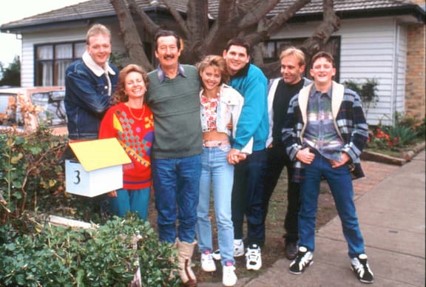In his Budget reply address, Opposition Leader, Peter Dutton, announced a pledge to “restore the Australian dream" of home ownership.
As Australia deals with a chronic housing shortage, soaring prices and a rental crisis, Dutton unveiled a host of changes to the migration system to help with the problems.
He said that from mid next year, a Coalition government would reduce the permanent migration program to 140,000. The program would then increase to 150,000 in its third year, before climbing to 160,000 in year four.
“We believe that by rebalancing the migration program and taking decisive action on the housing crisis, the Coalition would free up more than 100,000 additional homes over the next five years,” Dutton said.
“The great Australian aspiration of home ownership has become out of reach for so many,” he said.
“But I will never accept a situation where the only people who can afford to buy a home are people with rich parents.”
If you’re cynical about Dutton’s pledge, perhaps you have the right to be. Because in the same speech, he also reiterated a policy to allow Australians access to up to $50,000 of their super to buy their first home.
So, it seems that while he wants to reduce housing demand through migration cuts, he also wants to increase demand by allowing people to use their super to buy a home. Go figure.
The origins of The Great Australian Dream
The speech got me wondering about what this idea of 'The Australian Dream' or 'The Great Australian Dream' is, how it originated, and whether it’s still as relevant today. Peter Dutton clearly thinks it is relevant and he’s betting an election on it.
Firstly, what is the dream? It can simply mean, as Dutton stated: home ownership. In folklore, it’s owning a detached home on a large suburban block, with a backyard, and a barbecue and hills hoist to boot.
Yet, the dream is probably less about the house itself, and more to do with what it represents: success, security, and a better life.
And where did the phrase come? One theory is that it derives from the American Dream. In the US, the dream is associated with upward social mobility. The Great Australian Dream is more specific than that though, as it’s focuses on home ownership as a means to prosperity.
The Australian version is a relatively recent one. It only started to appear in the 1950s as home ownership blossomed following World War Two. Interestingly, the dream was initially ridiculed in the arts, in the paintings of John Brack in the 1950s, the famous novel My Brother Jack in 1964, and Robin Boyd’s architectural critique, The Australian Ugliness.
The idea gained steam in the 1980s as house prices took off. This was reflected in TV shows depicting The Great Australian Dream like Neighbours and Kingswood Country. Then, in 1997, came the movie, The Castle.

“It’s just the vibe of the thing”
Many consider The Castle to be the quintessential Australian movie. It follows Darryl Kerrigan’s fight to save his family home from being compulsorily acquired to make way for an airport expansion. Against the odds, Darryl, driven by his conviction that what he owns is not simply a house but a home, takes his fight all the way to the High Court.
The movie’s popularity, then and now, stems from it being almost a love letter to home ownership and The Great Australian Dream.
Yet, having rewatched the movie recently, I can’t help but wonder if its sentiments remain as powerful now as they did back then. Darryl and his wife, Sal, were able to buy their house in the early 1980s for a “steal” at $70,000. Today, the exact same property in Melbourne’s north is reported to be worth more than $1.4 million. Back then, house prices were 2.8 times average incomes, compared to close to 10 times now. And Darryl was able to buy his home on a single tow truck driver income, which would be a lot harder, if not impossible, to do today.
What the dream means now
Clearly, The Great Australian Dream remains a powerful idea today. Peter Dutton and every other politician knows there’s votes in it and continue to pander to that at every turn.
In a recent Firstlinks article, Graham Hand reflected on why houses seem to be changing hands at ever-ridiculous prices. He thinks there may be a few reasons. First, borrowers are willing to increase their loans with the bank, almost to whatever limit is allowed to secure a home. Second, the increase in the role of the Bank of Mum and Dad has changed the market. Third, it is becoming more common for mutigenerational families to buy and live together. Fourth is the other side of the generosity of grandparents. They may delay retirement beyond 60 or 65 by one of them working longer, perhaps while the other looks after the grandchildren.
There’s some merit to these thoughts. More broadly, they show the lengths that people are going to in order to buy a home, and the risks they’re willing to take – all in the name of achieving The Great Australian Dream.
Does it need tweaking?
The question is whether it’s still a dream worth pursuing? If house prices go nowhere for 20 years, would it still be considered The Great Australian Dream? Are there other ways that we should be measuring success and prosperity? Are there better dreams to target? Should we be looking at alternative ways to get wealthy? Should governments be promoting these other methods to get prosperous?
The current debate on housing is dominated by suggestions on making property more affordable for the young. It's an important issue. Yet, just as important may be broadening the debate to include different ways to define success both for ourselves and the country as a whole.
James Gruber is an assistant editor at Firstlinks and Morningstar.com.au.